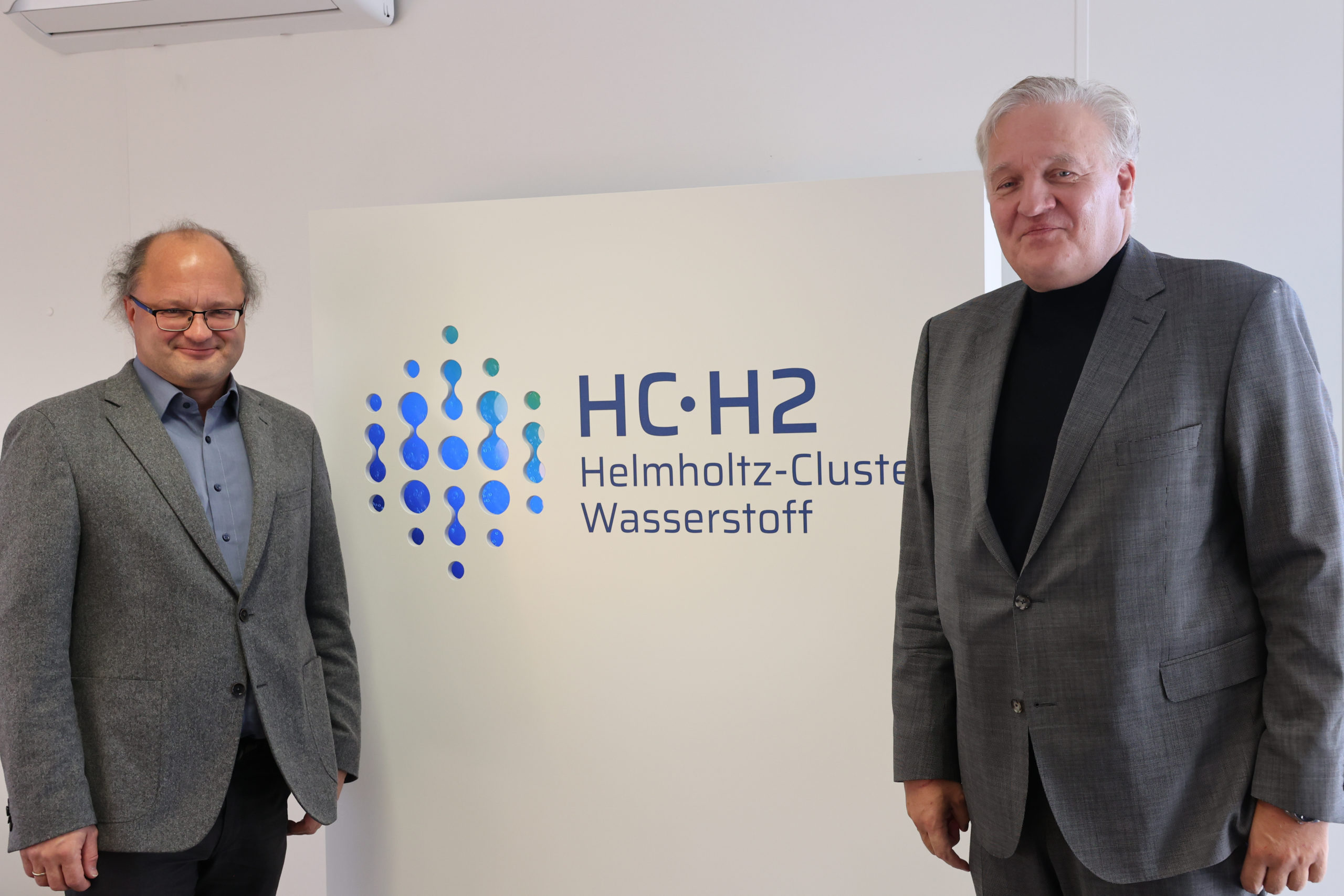The district of Düren and the Helmholtz Cluster for a Sustainable and Infrastructure-Compatible Hydrogen Economy (HC-H2) are looking to strengthen their dialogue. That is why district administrator Wolfgang Spelthahn and HC-H2 spokesperson Prof. Peter Wasserscheid met to talk about the major topic of hydrogen.
Net zero by 2035
For many years now, the district of Düren has been at the forefront in Germany when it comes to establishing hydrogen technologies. It currently operates five hydrogen buses, with plans in place to run the Rurtalbahn’s fleet of trains on hydrogen within the next few years. The district aims to become climate-neutral by 2035 by reducing its CO2 emissions to zero. This is why the district has installed a large photovoltaic system within sight of the HC-H2 container offices in Brainergy Park.
The 18,200 solar modules can achieve an output that could supply almost 3,000 households. This is equivalent to CO2 savings of 4,604 tonnes per year. In the medium term, an electrolyser is to be installed in the immediate vicinity. The electricity generated from solar energy will be used to operate the electrolyser in order to produce green hydrogen to power the buses and trains.
“If not here, then where else?” asked Wasserscheid, talking about the region’s hydrogen advantage. And not least because of the ambitious approach being taken by the district of Düren.
“If this region is unable to show just how important hydrogen will be for the energy economy of the future, then where else?” Wasserscheid went on to say.
“It is a stroke of luck that the Brainergy Park concept, which has long been well thought out, is already here. This shows that something is happening here, which is important for companies wanting to get involved in the topic of hydrogen and wondering where to do so.” Brainergy Park is an industrial park jointly operated by the town of Jülich and the municipalities of Niederzier and Titz in which sustainable and science-oriented concepts are implemented. The district of Düren is another shareholder.
Science and industry working hand in hand
Forschungszentrum Jülich made the conscious decision to locate its new Institute for a Sustainable Hydrogen Economy (INW) in Brainergy Park. The institute forms the core of HC-H2. Locating it in Brainergy Park should help the institute and the cluster become a highly visible contact point for people looking to make hydrogen a big topic.
“The decision taken by Forschungszentrum Jülich to locate the project here will significantly increase the appeal of hydrogen as a topic in our region and in our district. That is regional marketing at its best,” said Spelthahn.
He also stressed that the transition to renewable energy carriers would only succeed if industry and science work together. “Hydrogen is not possible without scientific aspirations. Both aspects come together in the HC-H2 project: basic research is carried out here and the findings are put into application. This helps all of us.”

